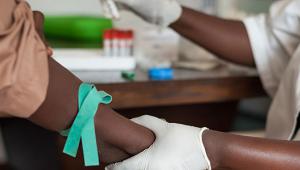Amsterdam, Paris, Kiev and Denver signed up to the Paris Declaration on Fast-Track Cities Ending the Aids Epidemic on World AIDS Day 2014. Under the declaration, cities with high HIV/AIDS burdens in every region of the world have committed to accelerate their responses to the virus.
The initiative pushes cities to work to achieve the United Nations 90-90-90 targets, which aim to see 90% of people with the virus diagnosed, on treatment and having their virus suppressed to an undetectable level. There is also a target to achieve zero stigma and discrimination against people living with HIV/AIDS.
José Zuniga, president and chief executive of the International Association of Providers of AIDS Care, a key partner in the initiative, explained that encouraging the collection of data holds stakeholders accountable, ensures no one is left behind and enables greater understanding of barriers affecting HIV care and responses.
“[This permits] cities to devise informed strategies to attain the decisive targets and contribute towards the goal of ending AIDS as a public health threat by 2030. We applaud Fast-Track Cities for their commitment to transparency and accountability.”
Amsterdam, Denver and Paris’ data, published today at the annual International AIDS Conference, shows that all three have met at least one of the 90-90-90 targets, set by UNAIDS, already.
San Francisco also published data on the number of people it has diagnosed, linked to and retained in care, and those achieving viral suppression, whereby the virus is still present but undetectable.
Eberhard van der Laan, mayor of Amsterdam, said that as well as working to achieve comprehensive and inclusive local responses, successful cities should work to share their experiences with others.
“If cities cooperated internationally, urban centres around the world would greatly benefit from exchanging success stories and lessons learned,” he said.
While local results demonstrate progress, experts at the beginning of this week’s conference in Durban, South Africa warned that stalling prevention efforts and falling funding mean that the virus is starting to win back ground.
On Monday, anti-poverty campaign ONE urged the international community to step up their responses or risk undoing two decades of progress toward ending the epidemic.
Full replenishment of the Global Fund – a pool to tackle AIDS, tuberculosis and Malaria – to the tune of $13bn will be key if the Sustainable Development Goal to end AIDS as a public health threat by 2030 is to be met.
Nachilala Nkombo, ONE deputy director for Africa, said: “2030 was earmarked by the international community as the year the disease would be defeated thanks to the breakthroughs in health programmes and medicines since the turn of the century.
“But a lack of funding in recent years risks a resurgence across the world’s poorest countries.”













